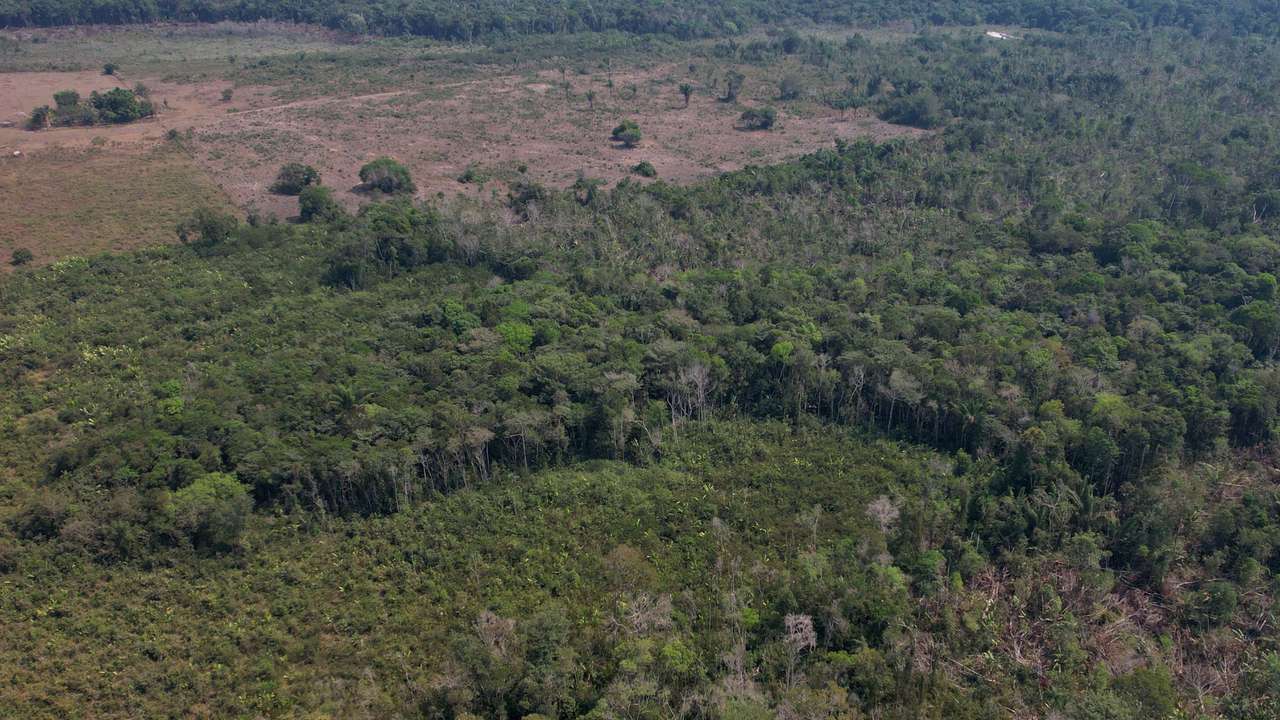US climate pullback threatens planned debt-for-nature deals

By Marc Jones and Virginia Furness
Billions of dollars of debt deals aimed at protecting vital ecosystems from Africa to Latin America are at risk of unravelling or may need reworking amid concerns that crucial U.S. backing is about to dry up under President Donald Trump.
The 'debt-for-nature' swaps, which reduce a country's debt in return for conservation commitments, have gained traction in recent years with deals involving the Galapagos Islands, coral reefs and the Amazon rainforest among the most prominent.
The U.S. International Development Finance Corporation (DFC) has been a key player, providing political risk insurance for over half of the deals done over the last five years, accounting for nearly 90% of $6 billion of swapped debt.
A source with direct knowledge of the plans said the DFC had about five swaps in the pipeline which are now in question with CEO-in-waiting Ben Black and U.S. government efficiency chief Elon Musk both criticising its climate work.
The source did not specify how much debt was covered by the swaps but pointed out that the last few DFC-backed deals involved over $1 billion each.
Spokespeople for the White House and the DFC did not respond to requests for comment on future DFC involvement in such deals.
A DFC official who spoke on condition of anonymity confirmed to Reuters it stepped down earlier this year as co-chair of a global task force set up in 2023 to expand the use of debt swaps.
U.S. Treasury Secretary Scott Bessent has also hit out at multilateral lenders for climate change work amid a broader U.S. retreat that has seen it withdraw from the Paris Agreement to curb global warming.
Angola and Zambia and at least one Latin American country are among those whose 'debt-for-nature' swap plans risk needing to be reworked or even abandoned due to DFC uncertainty, four sources that have been directly involved in the projects said.
Angolan Finance Minister Vera Daves de Sousa said her country, which is one of the most indebted in Africa and whose rivers feed the Okavango basin vital for endangered elephants and lions, has been talking to the DFC about two potential swaps.
One is a debt-for-nature deal, the other a broader 'debt-for-development' swap tied to education and young people.
"We feel openness from them (DFC), but especially on the debt-for-development swap," de Sousa recently told Reuters.
"We respect their vision," she added. "For us there is no difference – we have opportunities on the development side, and we have opportunities on the nature side."
In Zambia, which late last year was looking closely at a swap linked to its vast national parks that are home to over 40% of Africa's elephants, things have changed too.
"We are not completely shutting (the swap) down but we are not actively at it right now," its Finance Minister Situmbeko Musokotwane told Reuters, declining to specify the reason for the shift.
NEW REALITY
Generating money for conservation by exchanging costly government bonds for cheaper ones is seen as an obvious choice for smaller nations grappling with heavy debt loads and climate change pressures.
The UK-based, non-profit International Institute for Environment and Development estimates that the world's 49 poorest countries seen most at risk of debt crises could swap a quarter of the over $430 billion they now owe.
Given the signals coming from Washington, those that do should drop hopes of DFC support and look at alternatives, said White Advisory managing director Sebastian Espinosa, who has advised Barbados, Belize and Seychelles on such swaps.
Those could include credit guarantees from major multilateral development banks, potentially alongside private sector insurers and guarantors, as pioneered by the Bahamas last year.
Historically, though, DFC backing has been crucial in scaling up deals, offering up to $1 billion in political risk insurance. That protects those who buy the new lower-cost bonds if the governments involved fail to make payments.
"Who's going to step in? (to replace DFC) I don't know," said Eva Mayerhofer at the European Investment Bank, which backed a 2024 Barbados swap. "We won't be able to do debt conversions that regularly."
The Inter-American Development Bank, involved in five of the last nine debt-for-nature swaps, sometimes alongside the DFC —declined to comment on whether any of its plans were being affected.
Investment firm Nuveen's Stephen Liberatore, who has been a cornerstone investor in some debt swaps, said while substitutes for the DFC could be found, the knock-on effects were yet to be seen.
"What is the price for a private entity (to provide risk insurance) versus a public entity like the DFC?" Liberatore said. "Does it change the amount of savings?" which are then spent on conservation. "That's the ultimate question."
This article was produced by Reuters news agency. It has not been edited by Global South World.